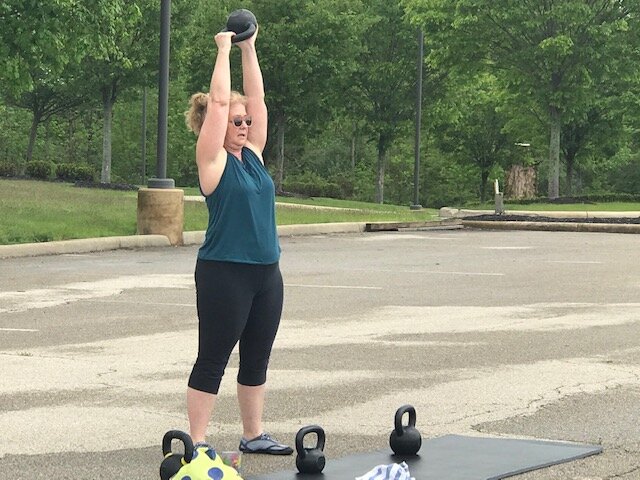When COVID-19 started, the gym where I teach closed and I began video recording myself and my husband working out in the basement. I also loaned out my equipment so my students could continue their training at home. There were challenges, but we persevered.
Gyms opened at the end of May and we moved to outdoor classes in the parking lot. New challenges emerged as we had to deal with the heat, wind, rain, humidity and having limited equipment to work with. But we adapted and thankfully we stayed healthy.
Now we are indoors and a whole new set of challenges is upon us with face coverings, social distancing, equipment cleaning, and concern about touching surfaces and equipment.
This experience has reaffirmed for me that the only way to get through change and challenging times is to turn to God in prayer to be filled with his strength. By his grace, and his grace alone, can I be kind, patient and loving to my neighbor. Faith applies 100% to daily life and that is more real to me now than ever.
I see the challenge of loving my neighbor most clearly in my secular activities — living my faith is hardest in the day-to-day, nitty-gritty details of ordinary life. God sees those times where there is angst in my heart as I discern how to respond to a concern, complaint or a difficulty. I want to be a vessel of his love, I truly do, so I regularly unload on him in prayer to help me to be more loving, patient and kind as we are all adapting to the new norms related to COVID-19.
When I give in to my weaknesses, I am reminded how selfishness brings sorrow, not joy, for us and for others. Our weaknesses are immensely powerful teachers and I have been asking God for the light to see my failures with more patience and gentleness — and with a sense of humor — how can I be so silly to let little things get to me or drive me to annoyance or impatience? Acknowledging our weaknesses, with an ardent desire to learn and grow from them, can set us on the trajectory to be more loving, kind and gentle with ourselves and others.
From 2 Corinthians 12:9-10, “But he said to me, “My grace is sufficient for you, for my power is made perfect in weakness. Therefore I will boast all the more gladly about my weaknesses, so that Christ’s power may rest on me. That is why, for Christ’s sake, I delight in weaknesses, in insults, in hardships, in persecutions, in difficulties. For when I am weak, then I am strong.”
This time of living with COVID-19 continues to be a time of learning how to love my neighbor more fully, with the heart of Christ, and with the gentleness of his Blessed Mother. May this scripture encourage us on our journey. From 2 Timothy 1:7, “For God did not give us a spirit of cowardice but rather of power and love and self-control.”






























